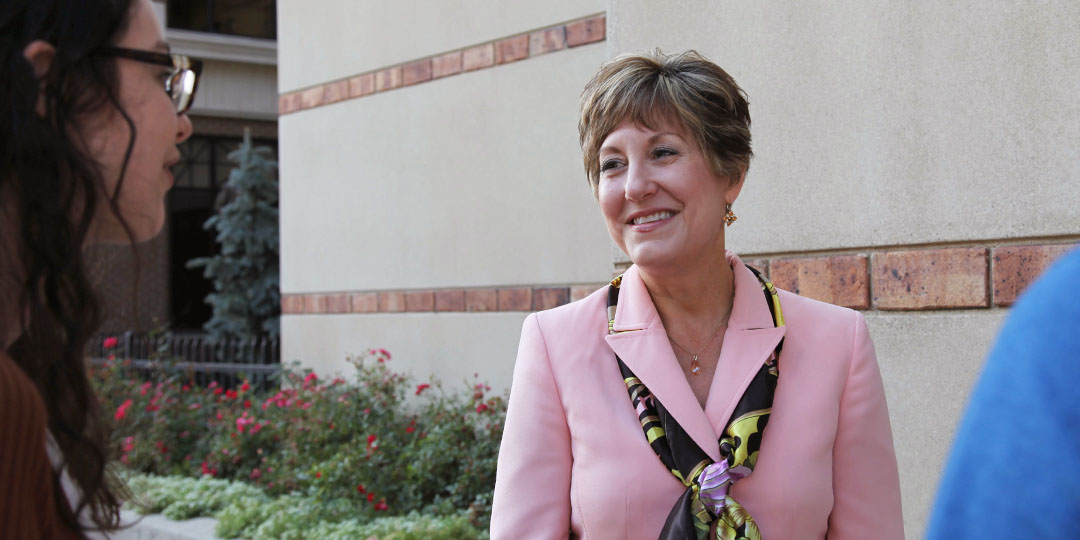
One thing is for sure. Only writing professionals and the grammar elite have the passion to wrap their heads around a single word and articulate, with authority, how that one word has evolved. Writing experts Cooley Professor Brad Charles and Thomas Myers, editor-in-chief of The Clarity Journal explore the genesis of the word they in the June 2019 issue of Michigan Bar Journal. Below are excerpts. Click here for the full article with citations. Posted with permission from the June 2019 issue of the Michigan Bar Journal.
Evolving The Roman god Janus must have been a grammarian. He presided over rituals recognizing the past and future, exits and entrances, beginnings and endings—all characteristics of ever-evolving grammar and word usage. If Janus were alive today, he’d be most excited about the pronoun they because more than any other essential word, it is in a period of change, with certain meanings fading and other meanings coming to light.
They (and them, their, and themselves) has for many centuries been used as a gender-neutral third-person-plural personal pronoun:
Daphne and Apollo ran through the laurel bushes; they were in love.
Janus would recognize that the historic use of they has been rigid, the reason for gallons of red ink spilled on millions of high-school, college, and law-school papers: “Pronoun-noun disagreement. Court is singular; they is plural.” But Janus is now presiding over a sea change in they’s usage toward a future of greater flexibility.
Embracing they’s flexibility
Recently, English speakers have been enjoying greater flexibility by using they as a singular pronoun. More and more writing experts and guides are trumpeting that the once-plural-only pronoun may now be used as a singular pronoun to (1) replace he or she, (2) to refer to collective nouns, and (3) to respect gender identities:
Not long ago: Everyone has his or her favorites.
Now: Everyone has their favorites
Not long ago: The administration implemented the policy even though it did not fully research the consequences.
Now: The administration implemented the policy even though they did not fully research the consequences.
(Not only does this feel natural to most people, but there’s no denying that using they to refer to collective singular nouns is riding the wave to the future. No amount of red ink in margins will stop it.)
Not long ago: Jamie is a transgender person. He can give us insight into this case.
Now: Jamie is a transgender person. They can give us insight into this case.
(This usage will grate on some ears. In fact, there’s discussion in the legal-writing community about whether to use they, ze, or xe as an appropriate gender-neutral pronoun; but that’s not what this article is about. In any event, consider the early resistance to nonsexist language, and consider the position of marginalized groups.)
The flexibility gained is in avoiding the clumsy he or she, capturing collective nouns with increased comfort, and respecting those who prefer a gender-neutral pronoun. Attorneys, as wordsmiths, should embrace these changes, or at least begin to. After all, it’s not as if this is the first time that word usage has naturally evolved. Take, as one of thousands of examples, the word egregious. It used to mean distinguished. That’s right: what now means appalling used to mean exceptional.
Additionally, other countries and texts have embraced the singular they. Canada says, “The use of the singular ‘they’ is becoming more common not only in spoken but in written English and can prove to be useful to legislative counsel in a legislative context to eliminate gender-specific language and heavy or awkward repetition of nouns.” Australia has also recognized that using they and their “as singular pronouns is acceptable . . . to avoid excessive repetition of ‘he or she’.”
Even a recent edition of the Bible uses singular they instead of the more traditional he where the original Greek or Hebrew version included a pronoun that could apply to both genders. The decision to go with singular they drew criticism, but the decision was based on an extensive study that couldn’t be ignored. “The gender-neutral pronoun ‘they’ (‘them’/’their’) is by far the most common way that English-language speakers and writers today refer back to singular antecedents such as ‘whoever,’ ‘anyone,’ ‘somebody,’ ‘a person,’ ‘no one,’ and the like.”
The United States has been slower to the game, but in recent years, singular they has caught up. But beware of they’s potential for ambiguity.
Tips to avoid ambiguous they
They’s future is bright. But as we enjoy they’s new flexibility, what can we do to avoid the “confusion and uncertainty” of they’s past? Here are practice tips to avoid ambiguous-they problems:
- Ask, “Who’s they?” When gathering evidence—whether intrial with a witness, in an affidavit, or in an interview—you
should see a red flag every time they is used. Ask the speaker to clarify whom they refers to. - Follow the instruction in the Michigan Legislative Drafting Manual: “When using pronouns, take care that the pronoun
clearly refers to the proper antecedent.” - Before submitting a drafted document—like a pleading, contract, or will—search for they in the document using Ctrl + F
(or, for Mac, Command + F), and test its clarity. - When you find a they that could refer to two or more antecedent nouns, try repeating the antecedent noun or reconstructing the sentence.



